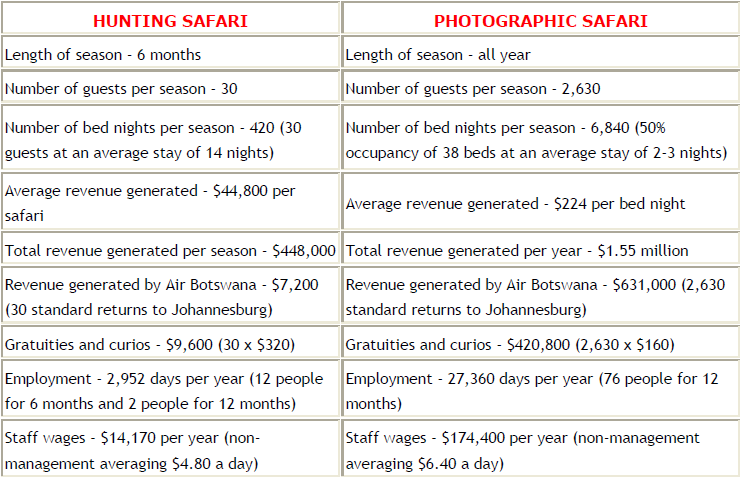Sorry for the delay shooter Ji, work is keeping me from doing anything else these days.
shooter wrote:
And i still dont get rolling on the floor with laughter funny part of it.
To tell you something, it was definitely not to ridicule your reply or your critical analysis. When you made the below statement,
shooter wrote:
It merely gives facts about cites appendix animals, poaching, canned hunting and makes the title 'trophy hunting'.
I just quoted the people must have collated the information in a much better way so that no one gets this opinion. I am sure they spent money, effort and time on it, so better prove themselves right, by all means! I would strive, not to give any opportunity to anyone, if I were to come up with one such thing. I am so sorry, if by any chance it gave you an impression that I am trying to ridicule. Kindly excuse me.
shooter wrote:
The length of horns increases by the year but the genes/dna remains the same. They have already passed on their DNA to the next generation by the time they are shot. These are not virgin deer.
Sharp point. However, there's another scenario, we can not dispose just like that. When you say, "they have already passed on their DNA to the next generation", it means, the next offspring will have a "re-combined genetic composition" and not the original gene, as the one that was shot. Re-combination can not assure all the features will be dominant, in all the off-springs. The tusk or horn for that matter, could be recessive!
shooter wrote:
If only the armchair conservationists who wrote that passage could go into the forset and see deer in various stages of antler growth and see them mating etc/ observe them in the wild.
It would probably be right to call "me" an armchair conservationist, if I make such statement. I hope you also took a look at the appendix for this paragraph. It is from a study called "
Utilization of Wild Living Animals, Conservation and Sustainable Development: Contradiction in Terms or a Promising Approach?" by
Martin Hutter, who is with a wild life organization, based out of Munich, Germany. At least, the wild life organizations don't employ "arm chair" conservationists.
So, in my humble opinion, it would make sense to confer the title upon someone, after reading the entire study submitted by him. Here's the link, but it is German. I too am on my way to get it translated.
http://www.prowildlife.de/sites/default ... 202001.pdf
shooter wrote:
The only difference in our view point is that I have seen with my eyes that of all the countries in the world that allow hunting, the animal numbers aren't depleting.
Numbers not depleting does not necessarily support Hunting plays a vital role in conservation.
shooter wrote:
Look at 2 countries where hunting is banned like India and Kenya and look whats happened.
On the other hand see US,UK,germany, Austria, Spain, France, Slovakia, Slovenia, Hungary, Bulgaria, (Basically western europe+eastern Europe+scandinavia), Mexico, Chile, Argentina, Uruguay, Canada, Greenland, Iceland, Turkey, Iran, Australia, NZ, Russia, South Africa, Namibia, Mauritius, Uzbekistan, Khazakhistan, Tajikistan, Azerbaijan, Georgia ... the list goes on.
You really think they all got it wrong?
The list might go on. More of the debate lies in the implementation of the same in India. There are also "mishaps", reported in some of the above countries, citations already quoted in the article under debate.
Again, as you quote
shooter wrote:and no 2 species with the different conservation status can be managed in the same way.
Same applies to the countries too. No two countries can resolve to manage the wildlife in the same way. I also can still question on the studies and the scientific processes by which they determine the number of "trophies" in a country. Several articles to quote. There are also several other practices which are being followed in the countries you have quoted and are not followed in India. Does it mean we have got it wrong?
Better option -- India should try to resort to the "best" possible constructive approach and try save the "very few" left over trophies.
shooter wrote:I was speaking to P***** an aquaintance of mine earlier today;

Not as a conservationist, but as a member of the "pro-hunting" fraternity, is this the way you deal with "Poachers"? Nothing specific, just curious.
P.s: The links you have given in other topics, as citations seem interesting. I will respond to them, once I'm out of my work's whirlpool.
prashantsingh wrote:
Yet srswamy , why do you think we are loosing most of our tigers? (A most endangered animal).
One must not group the Hunter and the Poacher as one and the same.
Thanks Prashant ji, for your response. Though they face many problems, the important ones are
1. Poaching.
2. Illegal trade across the borders, which triggers "Poaching".
3. Local people, hunting tribes.
Of course, I do not view "Hunters" and "Poachers" the same. However, the only point I was trying to illustrate from the article quoted was "Trophy hunting can be "dangerously" utilised as a "smoke screen" for poaching. People like you, might know the rules and abide by ethics, but unfortunately, the world is not full of such examples! For an instance, please see
http://www.rhinoconservation.org/2010/0 ... orn-trade/
Another tragedy, in the same country "South Africa", where hunting is believed to "work". Why aren't they able to stop this?


 so, please refer the URL for the PDF
so, please refer the URL for the PDF